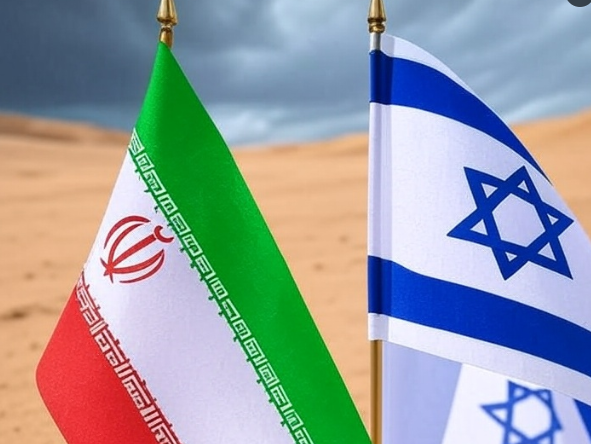Tensions between Iran and Israel reach a boiling point as the global nuclear watchdog confirms Tehran holds enough material for several nuclear warheads. While Israel claims its strikes have delayed Iran’s nuclear ambitions, fresh diplomatic efforts are underway in Geneva. Will diplomacy work or is a larger conflict looming? Get the full breakdown of this high-stakes nuclear standoff and the latest reactions from the US, EU, Iran, and Israel
Iran Holds Enough Nuclear Material for Warheads, Israel Strikes Delay Bomb
In the latest developments of the intensifying Iran-Israel conflict, multiple statements from global leaders, nuclear watchdogs, and diplomats have painted a complex and dangerous picture of the ongoing nuclear standoff.
Amidst the growing tensions, Israel continues to launch strikes against Iran. Israel’s Foreign Minister Gideon Sa’ar has stated that the Israeli Defense Forces (IDF) operations have successfully delayed Iran’s potential ability to develop a nuclear weapon by at least two to three years. These preemptive strikes are seen as part of Israel’s long-standing policy of preventing Iran from acquiring nuclear weapons capability.
On the other hand, Iran remains defiant. Iranian officials have consistently emphasized that the country has no intention to surrender or compromise on its sovereignty. The Iranian leadership, in several public statements, has suggested that the nation will not give in to external pressure or threats. Statements such as “Iran is not a nation to surrender” underline Tehran’s determination to resist what it sees as undue aggression.
Adding another layer to the crisis, Rafael Grossi, the chief of the International Atomic Energy Agency (IAEA), shared his assessment during an interview with Fox News. He confirmed that Iran currently possesses enough nuclear material for multiple warheads.
However, Grossi stressed that this should not automatically be interpreted as Iran having an actual nuclear weapon or an active weapons program. He clarified, “In terms of the material, I have said in my reports, we have confirmed that Iran does have even now enough material for several warheads, but this should not be equated with a nuclear weapon. We do not have at this point any tangible proof that there is a program or a plan to fabricate or manufacture a nuclear weapon.”
Grossi acknowledged that while there are scattered nuclear-related activities, there is no concrete evidence of a full-fledged weapons development program at this time. He expressed hope that diplomacy can still prevent the situation from escalating further, emphasizing that negotiations between Iran and the United States remain ongoing.
In a parallel diplomatic track, significant efforts have been made by European powers to de-escalate the crisis. Foreign ministers from Britain, France, and Germany, along with the European Union’s foreign policy chief, recently held a meeting with Iranian foreign minister Abbas Araghchi in Geneva. Prior to this meeting, the European officials also consulted with U.S. Secretary of State Marco Rubio, who indicated that Washington remains open to diplomatic talks with Tehran.
Following the Geneva discussions, Abbas Araghchi signaled a potential opening for renewed diplomacy, provided certain conditions are met. He stated that Iran is prepared to reconsider nuclear negotiations with the United States once Israel halts its military aggression. “Iran is ready to consider diplomacy once again and once aggression is stopped and the aggressor is held accountable for the crimes committed in this regard,” Araghchi said. He further emphasized that Iran’s defensive capabilities remain non-negotiable.
However, skepticism remains high in Tehran regarding the true intentions of the United States. In an exclusive interview with NBC News, Araghchi accused Washington of using the nuclear talks as a facade to cover up for Israeli attacks on Iran. He questioned the sincerity of American diplomacy and expressed deep mistrust towards U.S. motives, suggesting that perhaps Washington is not genuinely interested in a peaceful resolution. He firmly reiterated that Iran will never agree to completely halt uranium enrichment and that any meaningful negotiations will only be possible after Israel ceases its air campaign against Iranian targets.
As the situation unfolds, the international community watches closely. The dangerous mix of military strikes, ongoing enrichment activities, and fragile diplomatic talks make this one of the most volatile nuclear crises in recent times. Whether diplomacy can ultimately prevent a larger conflict remains uncertain.
Disclaimer:
The information presented in this video/blog is based on publicly available news sources, official statements, and media reports. The content is intended for informational purposes only and does not represent any political stance or endorsement. Viewers/readers are encouraged to verify facts independently. The situation is evolving, and new developments may change the context or understanding of events discussed.

